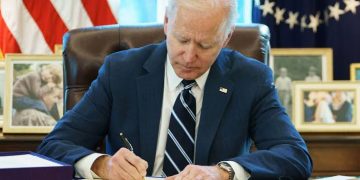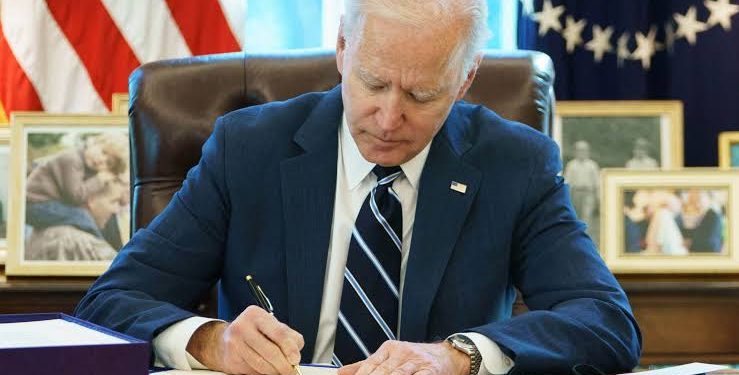By John Ikani
US President Joe Biden on Wednesday, announced that he is forgiving up to $10,000 in federal student loan debt for millions of Americans and an additional $10,000 for low-income borrowers.
Biden in a tweet on Wednesday also said he will cancel up to $20,000 for recipients of Pell Grants.
The relief will be limited to Americans earning under $125,000 per year, or $250,000 for married couples or heads of households. The relief is also capped at the amount of a borrower’s outstanding eligible debt, per the Education Department.
In order to benefit from this announcement, most borrowers will have to submit an application to verify their income.
The Education Department said nearly 8 million borrowers already have income information on file, and should qualify to have their debts canceled automatically.
The department will announce further details on how borrowers can claim this relief in the weeks ahead.
The President will also extend the payment pause on most federal student loans “one final time” through Dec. 31, 2022, according to the tweet.
An estimated 43 million Americans owe a combined total of $1.6tn in federal student debt.
Nearly one-fifth owe less than $10,000.
“My administration is announcing a plan to give working and middle class families breathing room as they prepare to resume federal student loan payments in January 2023,” Mr Biden said on Twitter.
The announcement follows more than a year of intense internal White House debate and mounting pressure from progressive Democrats. Top Democrats Senate Majority Leader Chuck Schumer of New York and Senator Elizabeth Warren of Massachusetts, are among those who had pushed Mr Biden to use his executive power to wipe out borrower debts.
Wednesday’s plan falls short of the $50,000 per borrower plan that Mr Schumer and Ms Warren had asked for.
A one-time cancellation of $10,000 for each borrower earning a maximum of $125,000 will cost the federal government around$300bn, according to an estimate from the Penn Wharton budget model at the University of Pennsylvania.
Republicans and some moderate Democrats have said debt cancellation will add to inflation by giving Americans more money to spend. And others say that blanket debt forgiveness is unfair to those who have already paid off students loans.
Many economists and higher education experts also opposed the move, arguing that widespread debt cancellation would do nothing to fix the rising costs of college.




































